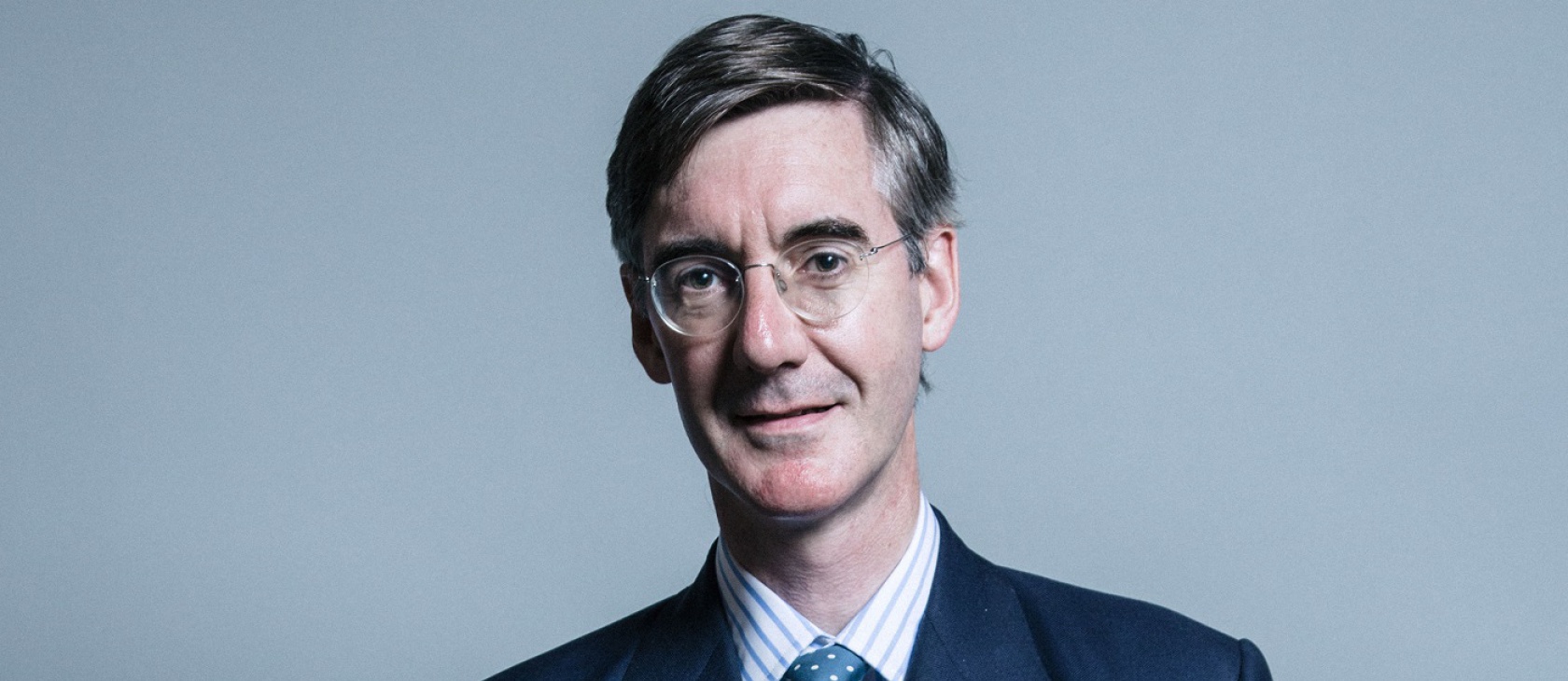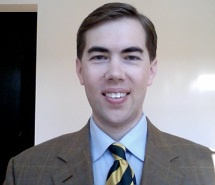The UK remains divided over the precise shape its relationship with the European Union will take after its departure from the EU on March 29, 2019. Amid this contentious multilateral process, the Rt. Hon. Jacob Rees-Mogg, who sits on the Exiting the European Union Committee, has emerged as a leading Conservative MP staunchly opposed to “BRINO,” a “Brexit-In-Name-Only” that would preserve participation in the European Economic Area. Rees-Mogg has been accusing the Treasury of doctoring evidence in favor of the Remain position, and has attracted a cult following within the eccentric Right among such figures as Nigel Farage, who irreverently approves of him as the next Tory leader. The Left, meanwhile, has relished mocking the MP for North East Somerset who attended Eton and Oxford and is seldom beheld outside a double-breasted suit. “Profound reactionary,” raves the New Statesman’s Martin Fletcher of the MP, “whose views are preserved in prehistoric amber,” according to Nesrine Malik of the Guardian.
"Britain has become a depressed middle-aged power … This is essentially a religious problem, because nothing can offer as valid a motive for action as religion."
Such attention from either side is, however, somewhat premature. Rees-Mogg is a “backbencher” who, despite his growing notoriety, has never served in government or held a great office of state. Neither is he an author of political literature, apart from a brief essay (2012) for the Politeia think tank, wherein he defines conservatism as “based on the individual’s free will which ought to be unencumbered save where it harms others.” Yet two primary themes emerge from his life and career. First, he has been extremely successful in international finance and investment, embarking upon a career in the City after university and, in 2007, establishing Somerset Capital Management which, along with an advantageous marriage, has secured him a fortune of tens of millions of pounds. Second, Rees-Mogg is a devout Roman Catholic famous (in some circles, infamous) for his orthodox positions on such issues as gay marriage or abortion, and is father to six children.
To help account for Rees-Mogg’s Christian capitalism, this article shall pursue the most promising line of inquiry: the life’s work of his father, Sir William Rees-Mogg.
British political ideology and allegiance tends to run in families, and to a greater degree than in the United States. The Brothers Miliband of the Labour Party are, for instance, the sons of the distinguished Marxist intellectual Ralph Miliband, while David Cameron is descended from a long line of royalists and Tories. In this respect, the life and doctrine of Sir William Rees-Mogg provides the most probable and penetrating insight into the politics of his son Jacob. Editor at The Times, chairman of the Governors of the BBC and the Arts Council of Britain, and a life peer from 1988, William Rees-Mogg acquired great attainments in both political economy and Christian theology, and fused their precepts together to create a patriotic political theology embracing both self-help and selfless love. He first addresses the moral dilemmas of global political economy in The Reigning Error: The Crisis of World Inflation (1974), wherein he explains that political conflicts including interstate war, revolutionary upheaval, or trade union militancy prompt an increase in the money supply, which in turn produces inflation. This result must be completely prevented, according to Rees-Mogg, because inflation disorders formerly functioning societies such as Rome, Germany, or Britain on a scale sufficient to portend their ruin. “Inflation is the great divider of societies,” he states, “the sharpener of hostilities, the differentiator of interests, the enemy of moderation and the enemy of altruism,” he writes (p. 62). “There is no inflation which has not ended with a corruption of society” (p. 66). Rees-Mogg supports his polemic against the civilizational horrors of inflation with both qualitative and quantitative evidence, but his solution lies in the past.
Rees-Mogg opens the thoughts of his heart with both the social vision of Reinhold Niebuhr and the personal witness of C.S. Lewis.
A global return to the gold standard, in his view, would transcend the spurious character of monetary policy, ensure that paper currency rests upon more than mere political foundation, and reinstate the stability in the world economy that he argues prevailed from the restoration of the monarchy in 1660 to the outbreak of World War I, an interval marked neither by inflation nor deflation. “Gold makes world inflation impossible; paper makes world inflation inevitable. Gold forces countries to face the realities of their economic position; paper allows countries to delude themselves … A gold system is a self-equilibriating system operating on a constant world money supply” (p. 81). The Bretton Woods system until 1971 saw the currencies of IMF countries pegged to the U.S. dollar which was, in turn, fixed and convertible to gold; and Rees-Mogg holds that the disestablishment of this system was a grievous error born of selfish avarice.
Rees-Mogg also became renowned as a leading investment consultant at a global level, producing for many years with James Dale Davidson a monthly Strategic Investment bulletin studiously read by many eminent figures in international finance. They shared this knowledge publicly through three co-authored investment books: Blood in the Streets: Investment Profits in a World Gone Mad (1987), The Great Reckoning: Protect Yourself in the Coming Depression (1993), and The Sovereign Individual: Mastering the Transition to the Information Age (1997). Their overall argument is that investment advice is worthless in the absence of great knowledge of what they call “megapolitics … the study of raw power” (1987, p. 23). Revolutionary movements, ethnic strife, religious fanaticism, state failure, and the vicissitudes of great power politics, according to Rees-Mogg and Davidson, are the true factors inducing the accumulation or deterioration of one’s shares; therefore, in these books they advance predictions about different countries, regions, and cultures of the world, most of which will deteriorate amid the decline of American hegemony. Through their consistent pessimism with respect to the future of international politics and its effects on personal economic development, Rees-Mogg and Davidson could plausibly claim to have predicted the Great Recession: “Sometime in the 1990s the United States and much of the rest of the world will face a major financial crisis, which will include the bankruptcy of many leading banking institutions” (1993, p. 533).
His career within finance capitalism, and his commitment to traditional Roman Catholicism are best understood as continuations of the life and doctrine of his father, Lord William Rees-Mogg. Christianity and capital have thus metaphorically begotten a son.
Yet William Rees-Mogg’s distinction as a global capitalist seer developed alongside a life of devout Christian obedience. In An Humbler Heaven (1977), Rees-Mogg opens the thoughts of his heart with both the social vision of Reinhold Niebuhr and the personal witness of C.S. Lewis. From his Irish-American mother came an observant Catholicism, and the Rees-Mogg family took Communion at Midsomer Norton in Somerset, where he began to grasp the centrality of Christian belief for both individual and society, and the corresponding vanity of alternative worldviews. “The love of God is part of the fabric of our civilization, the most important part, and once it is lost, no civilization of value can survive,” he wrote (p. 12). This divine love is manifest especially in liturgical prayer, in the sacraments, in family love around the dinner table, and between virtuous friends. The postwar, postmodern Britain of Rees-Mogg had however largely forfeited such beatitudes, for according to him, “[w]ithout empire, without a European purpose, without industrial pride, without God, Britain has become a depressed middle-aged power … This is essentially a religious problem, because nothing can offer as valid a motive for action as religion” (p. 56). In order to heal the British and every other nation, Rees-Mogg submits the Christianity of the Gospel and Epistles of John, which, in useful contrast to the apologetics of Paul and to the authority of Peter, represents an urgently necessary “doctrine of pure love” (p. 95).
Tory MP Jacob Rees-Mogg still has much to prove, and trolling the British Treasury is not perhaps the most promising start. But his career within finance capitalism, and his commitment to traditional Roman Catholicism are best understood as continuations of the life and doctrine of his father, Lord William Rees-Mogg. Christianity and capital have thus metaphorically begotten a son.




